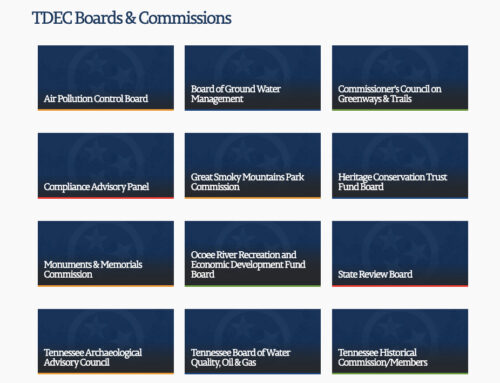The Open Records Ad Hoc Committee will hold its first meeting at 1:30 p.m. Aug. 14 at the Cordell Hull building as part of an effort to review a growing list of exemptions to the public records act.
Lt. Gov. Randy McNally and House Speaker Beth Harwell formed the committee in June after a report showed the number of statutory exemptions to Tennessee Public Records Act had grown to 538.

State Rep. Jason Zachary, R-Knoxville, is the House chairman of the joint Open Records Ad Hoc Committee, which was formed after a report showed the number of statutory exemptions to the public records law had grown to 538.

State Senator Todd Gardenhire, R-Chattanooga, is the senate chairman of a joint Open Records Ad Hoc committee examining the state’s exemptions to the public records law.
Last year, McNally and Harwell had requested that the Office of Open Records compile a report of all the public records exemptions. The Tennessee Public Records Act states that all records created by government in Tennessee are public records unless specifically exempted under the law. The office delivered the report to the legislature in January.
Open Records Ad Hoc Committee members
The open records ad hoc committee’s chairmen are Sen. Todd Gardenhire, R-Chattanooga, and Rep. Jason Zachary, R-Knoxville.
The other committee members are:
- Rep. Raumesh Akbari, D-Memphis
- Rep. Jeremy Faison, R-Cosby
- Rep. Bob Ramsey, R-Maryville
- Sen. Mike Bell, R-Riceville
- Sen. Kerry Roberts, R-Springfield
- Sen. Jeff Yarbro, D-Nashville
The committee is expected to consider which exemptions may need to be removed, changed or placed in sunset, where lawmakers vote to let a law continue, change it or let it expire.
Over 30 years, public record exemptions have grown from 88 to 538
The Office of Open Records published the list of 538 exemptions on its website in a PDF as well as a searchable database.
From the Associated Press story when the exemption report was released:
According to the state comptroller’s office, the Tennessee Public Records Act only had two statutory exceptions when it was enacted in 1957. By 1988, a legislative committee reported there were 89 exceptions.
In its report released Tuesday, the comptroller’s Office of Open Records Counsel found that number has grown to include hundreds of exceptions in Tennessee Code.
“I will tell you, they are hodgepodge all over the Tennessee Code Annotated,” Jason Mumpower, comptroller’s office chief of staff, told a Senate committee Tuesday. “I think we found them all.”
Senate Speaker Randy McNally, R-Oak Ridge, and House Speaker Beth Harwell, R-Nashville, requested the list to evaluate which exemptions may need to be removed or placed in sunset, where lawmakers vote to let a law continue, change it or let it expire. The legislative leaders made the request after reporters asked them about the exemptions last year.
Out of the 538 exemptions, only two are now scheduled to sunset: Protections for investment records of higher education institutions, to sunset in July 2021; and some exceptions for police body camera footage, slated to sunset in July 2022, Mumpower said.
McNally said Sen. Ken Yager, a Kingston Republican, and Sen. Mike Bell, a Riceville Republican, will be thoroughly examining the report.
“They will be taking a deliberate and systematic approach to determine which exemptions can be put into sunset or removed from the code altogether,” McNally said in a statement. “I look forward to hearing all legislators’ ideas on how to eliminate any unnecessary, unneeded or redundant exemptions.”




